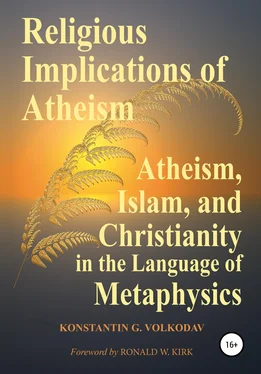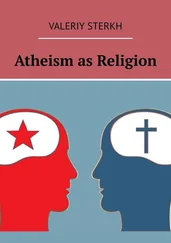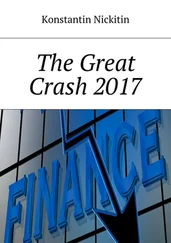Comment 7
Great quote! In it, atheists expose themselves. Not a single discovery of physics is spoken of in such terms. Elsewhere in the book, Alexander Vilenkin frankly says that the atheists really did not want to, but there was no way out, and they had to admit the fact of the beginning of the world, which was inconvenient for them. Moreover, it began from nothing, and not from the previous infinite universe.
From the fact of the beginning naturally follows the question of the Cause of this beginning and this fact confuses atheists. Therefore, in the atheistic USSR, the Big Bang theory was denied for thirty years, insisting on the postulate of the infinity and eternity of matter, that is, the “Big Bang” was viewed as the transition of uncreated and indestructible matter from one state to another. In 1955, a Soviet author wrote in an astronomical journal, “The Marxist-Leninist doctrine of an infinite universe is a fundamental axiom at the basis of Soviet cosmology . . . Denial or avoidance of this thesis . . . has nothing to do with science.” [8] . Quoted from: Wetter, A Historical and Systematic Survey , 436.
This is how Soviet atheism, which proudly called itself “scientific”, considered Marxist-Leninist axioms, that is, statements taken on faith, as its foundation.
In fact, the so-called “scientific” atheism has nothing to do with science. It is a set of atheistic dogmas, as a sacrifice to which hundreds of real scientists were expelled from the profession, and many were arrested and convicted. [9] . Legler wrote that during all periods of Soviet history from the 1920s to the time of writing the book (1985), Soviet science (all its areas, including natural sciences) was under the influence of the state (atheistic) ideology. See Леглер, Научные Революции при Социализме .
For example, the world famous scientist Academician N. I. Vavilov (by the way, he was a deeply religious Orthodox Christian) was sentenced to be shot [10] . Academician Nikolai Vavilov (1887–1943) died on death row. He was a famous geneticist, vice president of the All-Union Academy of Agricultural Sciences. In 1948, all genetic research in the USSR was discontinued. Hundreds of leading professors and instructors have been fired. Biology books based on genetics were seized and destroyed from libraries.
because he dared to criticize the erroneous views of Lysenko for the sake of scientific truth.
[00:24:00] Tzortzis: Before I get into that, we have to now discuss what a miracle is? The word comes from the Latin word miraculum, meaning something wonderful. And the traditional Western philosophical definition of the miracle, as summarized by David Hume in his An Enquiry Concerning Human Understanding. [11] . David Hume (1711–1776) was a Scottish Enlightenment philosopher, historian, economist. An Enquiry Concerning Human Understanding (1748) contains reworking of the main points of the “Treatise”, with the addition of material on free will, miracles, the Design Argument, and mitigated scepticism. Section 10, On Miracles , of the Enquiry, was often published separately.
He says that it is a transgression of natural law. We do not agree with that definition. Because what are natural laws? Natural laws are just inductive generalizations of patterns we can see in the universe . . . That the profound Islamic theologians and thinkers have done, they redefined that a miracle is, based on the Qur’anic discourse. And they have said, that a miracle is an event that lies outside the productive capacity of nature. Which means, when you go to a nature of the event . . . there is no naturalistic cause or link between the event and the nature of the event . . .
[00:32:10] Krauss: Well, first of all, I want thank the people invited me, who been very gracious to me . . . That does not mean I respect ideas. Some ideas are ridiculous. And that is perfectly reasonable. In fact, ridicule an ideas is that makes progress.
Comment 8
Here Krauss introduces himself as a clown, determined only to make fun of. He does not want to ask, understand, or come to know the particulars. How can one make fun of what he do not know and don’t understand? In order to more or less understand Christianity or Islam or Buddhism, they need to be studied much longer than any science. For example, in the Russian Empire, one had to study theology for twelve years.
It would be better if Krauss said that laziness is the engine of progress. Then you could at least smile. His ridicule of ideas is not at all funny. This is a crude propaganda trick. The real engine of progress is the desire to find out the truth. Unfortunately, Krauss does not show such a desire.
It is a pity! One might suggest that he analyze atheistic literature from the mid‑nineteenth century to the mid‑twentieth. There are so many ridiculous ideas, mistakes, and contradictions with the data of modern science that one can laugh!
[00:33:42] Krauss: Debates that I watched were always exactly the same. So I thought will be different this time. And it is always begin to you and I have to respond to you. And I will to some extent, but it is hard respond to nonsense. And in fact, the point of this is not a question does God exist, that is “Islam or Atheism, which is more sensible”. I was just shocked because I thought that you would not try to pretend you know science. Because you do not. And we will go through that in real detail. Everything you said is nonsense what regards to science.
Comment 9
Here the style of speech is not at all decent for a scientist. There is a kind of discussion ethic in academia. If the interlocutor thinks about the opponent’s statement that “this is complete nonsense,” then the most rude thing that can be said aloud is “I don’t understand you”.
In fact, it is completely inappropriate to compare religion and natural sciences, although this is often done. If you compare religion with anything, then you need to take examples from the sphere of art or human relationships. It would be rather silly to come to a museum and start criticizing the masterpieces of art in terms of probability, causality, the laws of mathematics and physics. And nobody does that. How to prove beauty, can it be scientifically falsified? Beauty and love, cannot be proven or recognized as scientific, but from this they do not lose their value. Beauty and love occupy an important place in human life. The same can be said for religion.
[00:34:30] Krauss: Let me just first begin with the fact that the premix of this debate is, in some sense, inappropriate . . . First of all, it is suggest that Islam is something special. It is not! It is not special at all. It is one of a thousand religions, or more, that have existed since the dawn, which claim divine revelation. All of which claim perfection, proclaim infinite knowledge, uniqueness, beauty et cetera. So Islam is just a religion like any other religion. And there is no difference. It proclaims just as Rig Veda . . . ancient Egyptians, that the universe had a beginning. Nothing special . . . Okay . . . Islam one of a thousand religions. All of which make same claims.
Comment 10
Even within the same religion, there can be different trends and significant differences of opinion. For example, Catholics, Protestants and Orthodox in Christianity, Sunnis and Shiites in Islam. Even about these confessions within one religion, one cannot say, “It’s the same everywhere. Nothing special.”
It is completely incomprehensible how, from the fact that there are a thousand religions in the world, it can be concluded that there is not a single unique one among them? For example, there are millions of paintings in the world. However plots, maybe only a few dozen. Does it follow from this that among the hundreds of thousands of paintings with a similar plot, there is not a single unique one? Why does one sell for two dollars and the other for a hundred million? In addition, it is sometimes difficult for a nonprofessional to distinguish a fake from the work of a genius. The nonprofessional will say, “In one picture, a fruit, and in another picture, the same fruit—the same thing, nothing special.” The expert will say, “One picture is a simple consumer goods, and the other is a unique masterpiece.”
Читать дальше

![Константин Бальмонт - Константин Бальмонт и поэзия французского языка/Konstantin Balmont et la poésie de langue française [билингва ru-fr]](/books/60875/konstantin-balmont-konstantin-balmont-i-poeziya-francuzskogo-yazyka-konstantin-balmont-et-thumb.webp)










